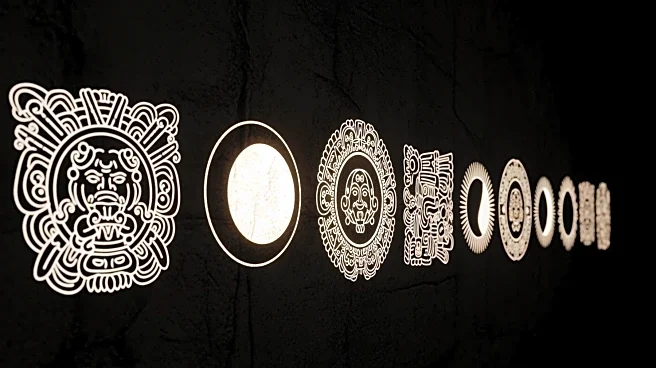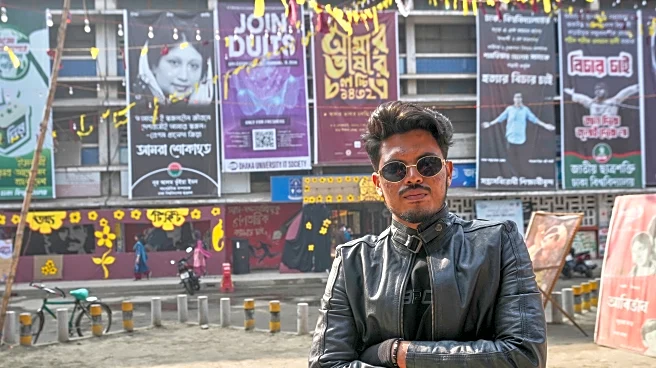What's Happening?
Researchers have made a breakthrough in understanding how the Maya civilization predicted solar eclipses, as detailed in the Dresden Codex, a medieval Maya text. This codex, dating back to the 11th or
12th century, is one of the few surviving hieroglyphic texts from the Maya civilization. It contains detailed astronomical and astrological information, including a table used by Maya calendar specialists, known as 'daykeepers,' to predict eclipses over a span of 405 lunar months. The new study, published in Science Advances, suggests that the table was not meant to be used in a continuous loop, as previously thought. Instead, it should begin anew in the 358th month, allowing for more accurate predictions. This method aligns closely with modern eclipse cycles, enabling the Maya to predict solar eclipses with remarkable precision.
Why It's Important?
This discovery sheds light on the advanced mathematical and astronomical knowledge of the Maya civilization, highlighting their ability to predict celestial events with high accuracy. Understanding these methods provides valuable insights into the cultural and spiritual practices of the Maya, who relied on such predictions for religious and societal rituals. The research underscores the sophistication of pre-Columbian civilizations in the Americas, challenging previous assumptions about their scientific capabilities. This could influence current perspectives on indigenous knowledge systems and their contributions to global history.
What's Next?
The findings may prompt further research into other aspects of Maya astronomy and mathematics, potentially leading to more discoveries about their civilization. Scholars might explore additional codices or archaeological sites to uncover more about the Maya's scientific achievements. This research could also inspire a reevaluation of other ancient texts and artifacts, encouraging a broader understanding of historical knowledge systems.
Beyond the Headlines
The study highlights the importance of preserving and studying ancient texts, as they hold keys to understanding past civilizations. It also raises questions about the loss of knowledge due to historical events like the Spanish Inquisition, which destroyed many such documents. This underscores the need for ongoing efforts to protect cultural heritage and support archaeological research.











